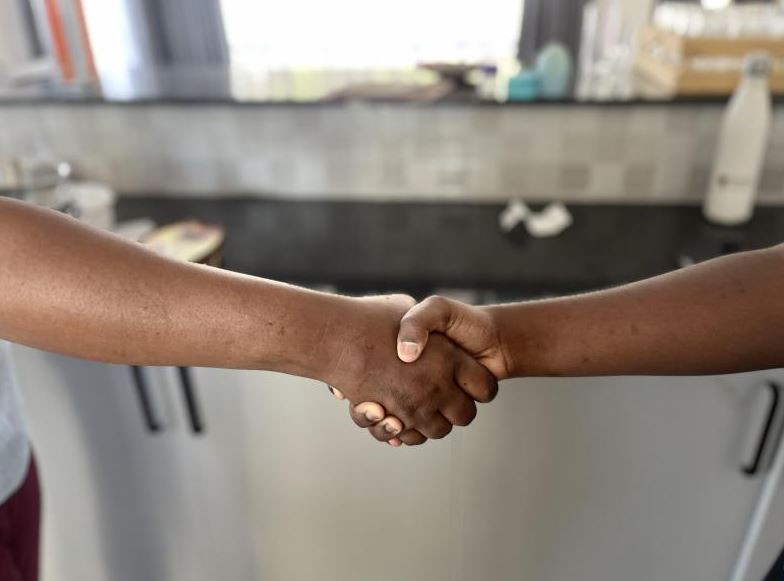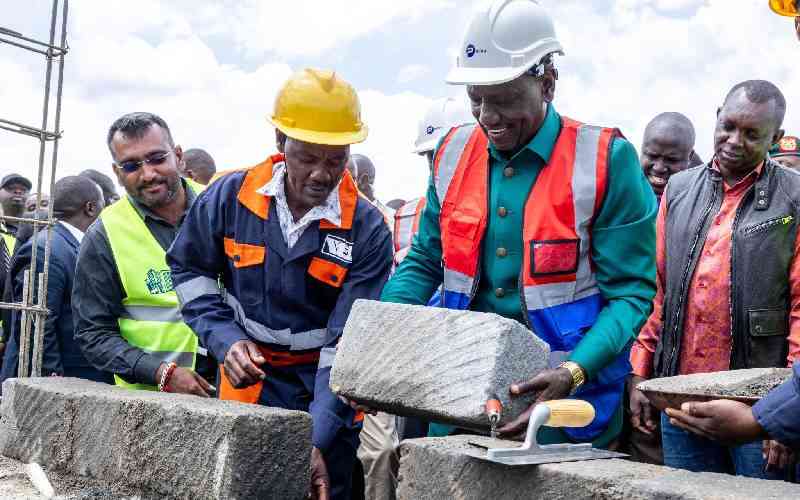Dear Mr President, allow me to skip the greetings Your Excellency, this is an urgent letter. I am writing to you about my parents and grandparents and my relatives who live in Ushago, Mashamabani or ‘the countryside’ as some Kenyans call our rural areas.
I am writing because of my people upcountry, who live in places with funny names like Kapsoroget and Kebeneti and Kibingei. Obscure localities that do not enjoy the fame of Sugoi, Gatundu, Sacho and Othaya.
I use this opportunity to write because I heard that you are currently thinking hard, and that your thoughts are about balancing livelihoods and lives during this pandemic. That the unenviable task of weighing the country’s economy against Kenyan's lives has of course fallen upon you.
So, as one who was born and bred in the "rural reserves", here is my petition to you. As you weigh the economic benefits of opening up against the human cost of shutting down, I implore you to think of these people in shags.
Your Excellency, I grew up in Ushago. And washamba like us struggle with the concept of social distancing. Much as we try, it is counterintuitive not to physically embrace each other, let alone not to shake hands.
We are highly communal. We love to huddle and commune together. While in Nairobi people can go five years without knowing what their next door neighbour does for a living, in shags we know what the neighbour’s third born son is pursuing in technical college and whether he is a good Christian boy or an errant wild child tormenting his hardworking parents with his "Nairobi ways".
Behavior is extremely difficult to change. Someone once said we only change our behavior when the pain of staying the same becomes greater than the pain of changing. And we Africans painfully discovered this many years ago, when we were in the midst of another global pandemic, HIV and Aids.
It took the Kanu government a series of ghastly, macabre campaigns for Kenyans to demonstrate a semblance of behavioral change.
Many remember jarring images of the 1990s showing infected people with one foot in the grave to convince Kenyans how ruthless the HIV virus was then. And indeed Kenyans were shocked into action. In short, I am imploring you to not lift the cessation of movement order. At least not until you have ensured that people in shags are not as vulnerable as they currently are.
Global fact of life
We already know that there is disparity between healthcare in the rural and urban areas; we do not need the coronavirus to tragically expose that fact. And this imbalance is not peculiar to Kenya.
Everywhere in the world, rural areas from Afghanistan to America to Angola are far less equipped for a global pandemic than the urban spaces are.
The big hospitals, the experts on epidemics, the ventilators and ICUs are all concentrated in big towns and cities. This is a global fact of life. It is what it is.
On a more emotional level, the children and people of Nairobi have their cucu, dani, batiem, kogo and magokoro living up-county.
Incidentally, these are the groups of people that are most vulnerable to the coronavirus because of age, and potential underlying medical conditions. If the floodgates of Covid-19 are opened to them, a generation of Kenyans will be grandparent and parent-less by the time this pandemic ends. This is an extreme, but likely prediction. In the US, out of the 81,372 people who succumbed to the coronavirus by May 23, about 77,000 were over age of 50.
Stay informed. Subscribe to our newsletter
Finally, Your Excellency, I would like to request that you ignore the decisions of Western countries when it comes to the coronavirus and the economy. We should pretend that they do not exist. They are not us. We are not them.
Their circumstances, infrastructure and realities are different. Their grandparents do not live where ours live. Their Level 5 hospitals are not ours. Their attitudes are not ours.
Kenya’s strategy cannot be shaped against the world’s. It is a time to look inwardly when it comes to the economy, and when we must, we should only look outwardly when it comes to containment strategies.
As Ghana’s President Akuffo-Addo said: “We know how to bring the economy back to life, what we do not know is how to bring people back to life.”
-The writer is a PhD candidate in political economy at SMC University. [email protected]
 The Standard Group Plc is a
multi-media organization with investments in media platforms spanning newspaper
print operations, television, radio broadcasting, digital and online services. The
Standard Group is recognized as a leading multi-media house in Kenya with a key
influence in matters of national and international interest.
The Standard Group Plc is a
multi-media organization with investments in media platforms spanning newspaper
print operations, television, radio broadcasting, digital and online services. The
Standard Group is recognized as a leading multi-media house in Kenya with a key
influence in matters of national and international interest.
 The Standard Group Plc is a
multi-media organization with investments in media platforms spanning newspaper
print operations, television, radio broadcasting, digital and online services. The
Standard Group is recognized as a leading multi-media house in Kenya with a key
influence in matters of national and international interest.
The Standard Group Plc is a
multi-media organization with investments in media platforms spanning newspaper
print operations, television, radio broadcasting, digital and online services. The
Standard Group is recognized as a leading multi-media house in Kenya with a key
influence in matters of national and international interest.






